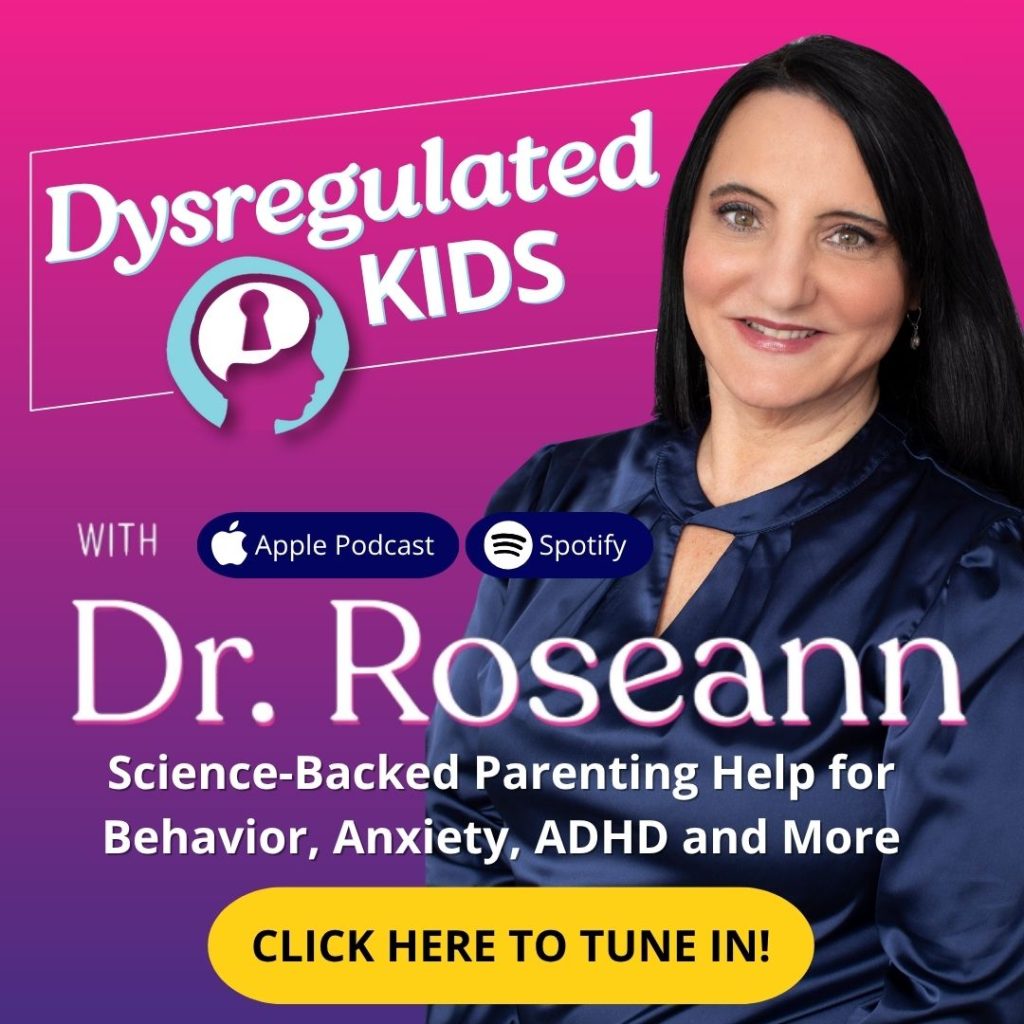
Estimated reading time: 8 minutes
If bedtime feels like a battle or your child wakes up cranky and tense, you may be wondering, “Why can’t my child just calm down?” Please know—it isn’t bad parenting, and it isn’t your child being difficult. Often, what looks like moodiness or meltdowns is really the body asking for help.
One of the most overlooked culprits? Magnesium deficiency. This quiet but powerful mineral keeps the brain and body steady. When levels dip, kids can struggle with sleep, focus, digestion, and big emotions.
And here’s what many parents don’t realize: modern diets, depleted soils, and even stress make magnesium deficiency surprisingly common—even in kids who eat well.
In this guide, we’ll cover the 16 warning signs of magnesium deficiency and how you can support your child’s brain and body in simple, natural ways.
Why is magnesium so important for kids’ brains and bodies?
Magnesium is often called the “calming mineral” because it helps regulate hundreds of systems in the body.
For children, magnesium:
- Supports neurotransmitters that calm the brain (like GABA)
- Helps regulate stress hormones (like cortisol)
- Balances sleep cycles and energy
- Reduces muscle cramps, tics, and restless legs
- Supports focus and attention—especially in kids with ADHD or anxiety
- Boosts immune health and hormone balance

What Causes Low Magnesium?
With so many kids (and parents) under constant stress these days, magnesium deficiency shows up more often than you’d think. Stress, processed foods, and even the way our soil has changed all play a role. When magnesium runs low, it isn’t just random—it’s the result of real factors draining this calming mineral from your child’s system.
Here are some of the most common reasons why magnesium levels dip:
- Inadequate Dietary Intake: A diet low in magnesium rich foods, such as nuts, seeds, leafy green vegetables, and whole grains, can lead to insufficient magnesium intake.
- Gastrointestinal Disorders: Conditions like Crohn’s disease, celiac disease, and other gastrointestinal disorders can impair magnesium absorption.
- Alcohol Consumption: Excessive alcohol intake can interfere with magnesium absorption and increase urinary excretion, contributing to the symptoms of low magnesium levels.
- Medications: Some medications, such as diuretics, proton pump inhibitors, and certain antibiotics, may interfere with magnesium absorption or increase its excretion.
- Chronic Stress: Stress can lead to magnesium depletion as the body may use up more magnesium during times of stress.
- Kidney Disorders: Impaired kidney function can result in increased magnesium excretion, leading to lower magnesium levels.
- Diabetes: People with diabetes may be at an increased risk of magnesium deficiency due to factors like increased urination and impaired magnesium utilization.
- Aging: Older adults may be more prone to magnesium deficiency due to reduced absorption and increased excretion.
- High Calcium or Vitamin D Intake: Excessive intake of calcium or vitamin D supplements without sufficient magnesium can lead to an imbalance and reduce magnesium availability.
- Certain Health Conditions: Conditions such as hyperthyroidism and parathyroid disorders may affect magnesium levels.

What are the 16 warning signs of magnesium deficiency?
A 2024 pediatric review found that magnesium deficiency in children can trigger fatigue, irritability, tremors, seizures, and even heart rhythm changes—signs that go far beyond moodiness or “bad behavior” (Sagar et al., 2024).
Well, magnesium deficiency can look very different from child to child. Here are the 16 most common signs parents should watch for:
- Frequent anxiety or nervousness
- Irritability and mood swings
- Difficulty sleeping or staying asleep
- Restless legs or muscle cramps
- Constipation
- Low energy or chronic fatigue
- Poor focus and attention
- Headaches or migraines
- Sugar cravings
- Sensitivity to noise or light
- Tics, muscle twitches, or clumsiness
- Loss of appetite or morning nausea
- Personality shifts—apathy, flat mood, or sadness
- Tingling or numbness (“pins and needles”)
- Irregular heartbeat or palpitations
- Tremors, shaking, or unusual eye movements
Parent example:
Amanda noticed her 10-year-old son was cranky at breakfast, often skipping food and complaining of “pins and needles” in his fingers. At first, she chalked it up to growing pains and stress at school, but the symptoms kept piling up—irritability, restless nights, and frequent stomachaches.
After working with a practitioner to adjust his diet and add a magnesium supplement, Amanda saw a remarkable shift: his appetite returned, the tingling stopped, and mornings felt calmer for the whole family.
How does low magnesium affect mood and behavior?
When magnesium is low, the nervous system stays in overdrive. Kids may look moody, defiant, or “lazy,” but their brain is simply struggling to regulate.
Signs in mood and behavior:
- Overreacting to small stressors
- Difficulty calming down after upset
- Constant restlessness or fidgeting
- Low tolerance for frustration
- Flat mood or loss of interest in favorite activities
“Magnesium helps regulate the stress response system. Without it, children may appear more irritable or anxious—not because of willful behavior, but because their nervous system is on high alert.” — Dr. Mona Delahooke, Child Psychologist
Can magnesium deficiency cause anxiety and sleep problems?
Yes. Magnesium deficiency is strongly linked with anxiety, insomnia, and night restlessness.
When levels are low, kids may experience:
- Racing thoughts at bedtime
- Nighttime leg cramps or twitches
- Frequent night waking
- Morning crankiness or fatigue

Is there a link between magnesium deficiency and ADHD?
Yes. Many children with ADHD have been found to have lower magnesium levels than peers. Magnesium supports attention, impulse control, and calming brain chemistry.
Signs in ADHD kids:
- Difficulty sitting still
- Quick tempers
- Impulsive reactions
- Lower frustration tolerance
Clinical research shows that magnesium supplementation—especially when combined with vitamin D—has been shown to improve behavior and attention in ADHD children.
Who is most at risk for magnesium deficiency?
While any child can develop low magnesium, some are at higher risk:
- Children with Type 1 Diabetes (linked to poor glucose control and vascular complications)
- Kids with digestive issues like Crohn’s or celiac disease (nutrient absorption problems)
- Children on highly processed diets with little whole food intake
- Picky eaters with restricted food variety
- Kids under chronic stress or high activity loads (athletes, high-anxiety children)
What foods are high in magnesium for kids?
Kid-friendly, magnesium-rich foods include:
- Pumpkin seeds
- Almonds and cashews
- Bananas
- Avocados
- Spinach
- Beans and lentils
- Dark chocolate (70% or higher)

When should you consider magnesium supplements for kids?
Food first, always—but supplements can help when:
- Multiple deficiency symptoms are present
- Sleep and anxiety persist despite diet changes
- Picky eating limits magnesium intake
- ADHD, OCD, or anxiety worsen with stress
Important note: Check with your pediatrician before starting supplements. Magnesium glycinate and magnesium threonate are usually best tolerated for kids.
How do you know if your child really has a magnesium deficiency?
Because most magnesium is stored in tissues, not blood, standard labs or serum tests can miss it or often appear normal even when deficiency exists.
Your provider may check:
- Symptom patterns
- Dietary intake
- RBC magnesium tests (more accurate than serum magnesium)
What magnesium changes look like in real life:
Magnesium quietly powers your child’s brain and body. When it runs low, kids show it through anxiety, fatigue, appetite changes, mood shifts, digestive problems, and even heart rhythm issues.
The hopeful news? Once you recognize the signs and add magnesium-rich foods—or, with guidance, supplements—your child can feel calmer, more focused, and emotionally steady.
Like Amanda, many parents discover that what first looked like “bad behavior” was actually the body asking for help. With the right support, children can regain their spark—and families can find more peace in daily life.
If you notice these 16 warning signs of magnesium deficiency, trust your instincts, talk with your provider, and take small steps today.
FAQs
Can low magnesium cause tantrums?
Yes. It increases irritability and makes it harder for kids to calm after big emotions.
What’s the best magnesium supplement for kids?
Magnesium glycinate and magnesium threonate are often gentler and more effective for the brain and mood.
Can magnesium help with OCD or anxiety?
It may ease restlessness and anxious thoughts, but it works best as part of a larger regulation plan.
Terminology
- GABA: A calming brain chemical magnesium supports.
- RBC magnesium test: A lab that checks magnesium in red blood cells.
- Neurotransmitters: Chemicals that affect mood, sleep, and focus.
Citations
Sagar, A., Kalburgi, V., Vagha, J., Taksande, A., Meshram, R., and Lohiya, S. (2024). A comprehensive review of the role of magnesium in critical care pediatrics: mechanisms, clinical impact, and therapeutic strategies. Cureus, 16(8):e66643. https://doi.org/10.7759/cureus.66643.
Always remember... “Calm Brain, Happy Family™”
Disclaimer: This article is not intended to give health advice and it is recommended to consult with a physician before beginning any new wellness regime. The effectiveness of diagnosis and treatment vary by patient and condition. Dr. Roseann Capanna-Hodge, LLC does not guarantee certain results.
Are you looking for SOLUTIONS for your struggling child or teen?
Dr. Roseann and her team are all about science-backed solutions, so you are in the right place!

© Roseann Capanna-Hodge

%20.png)















